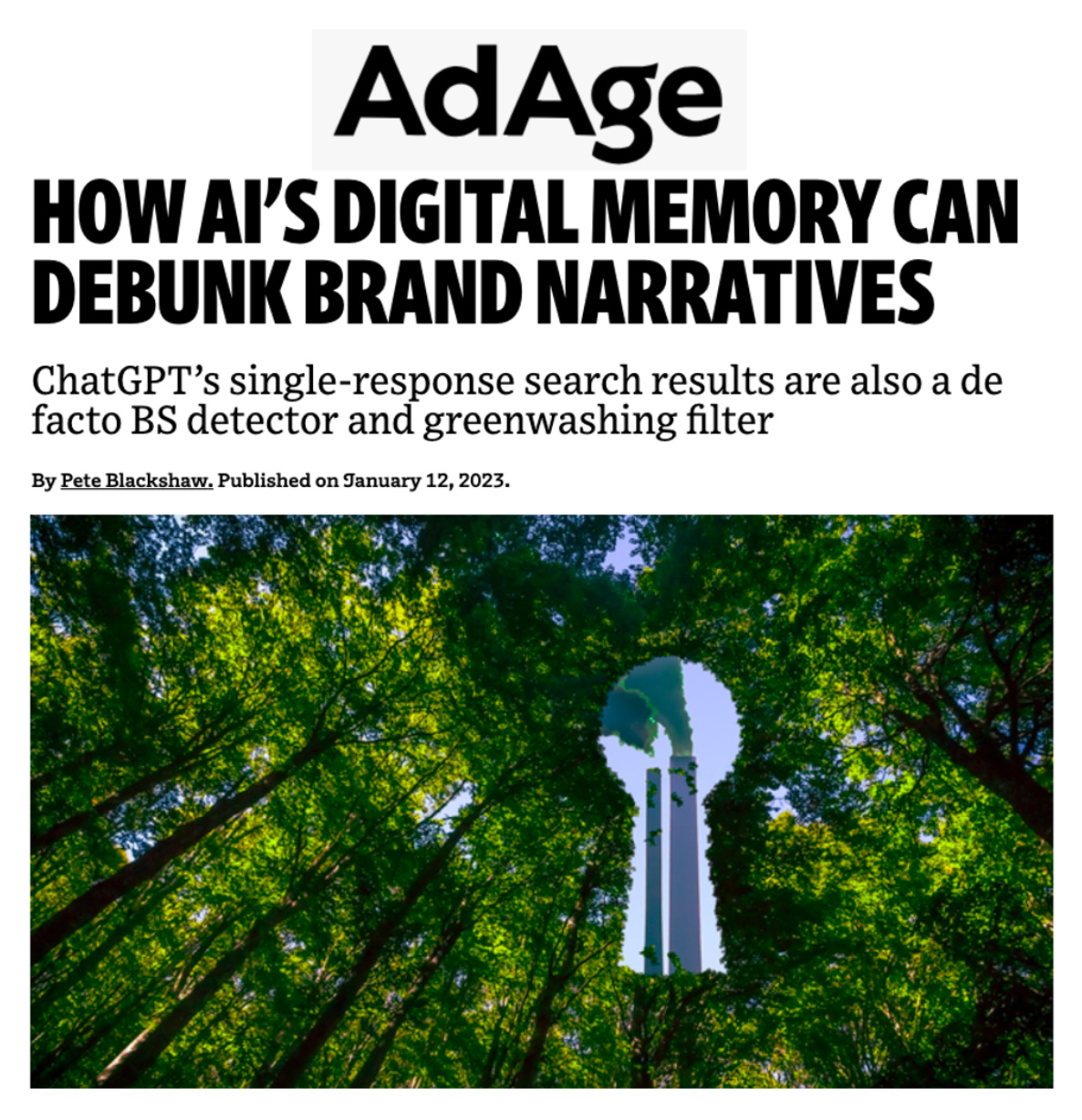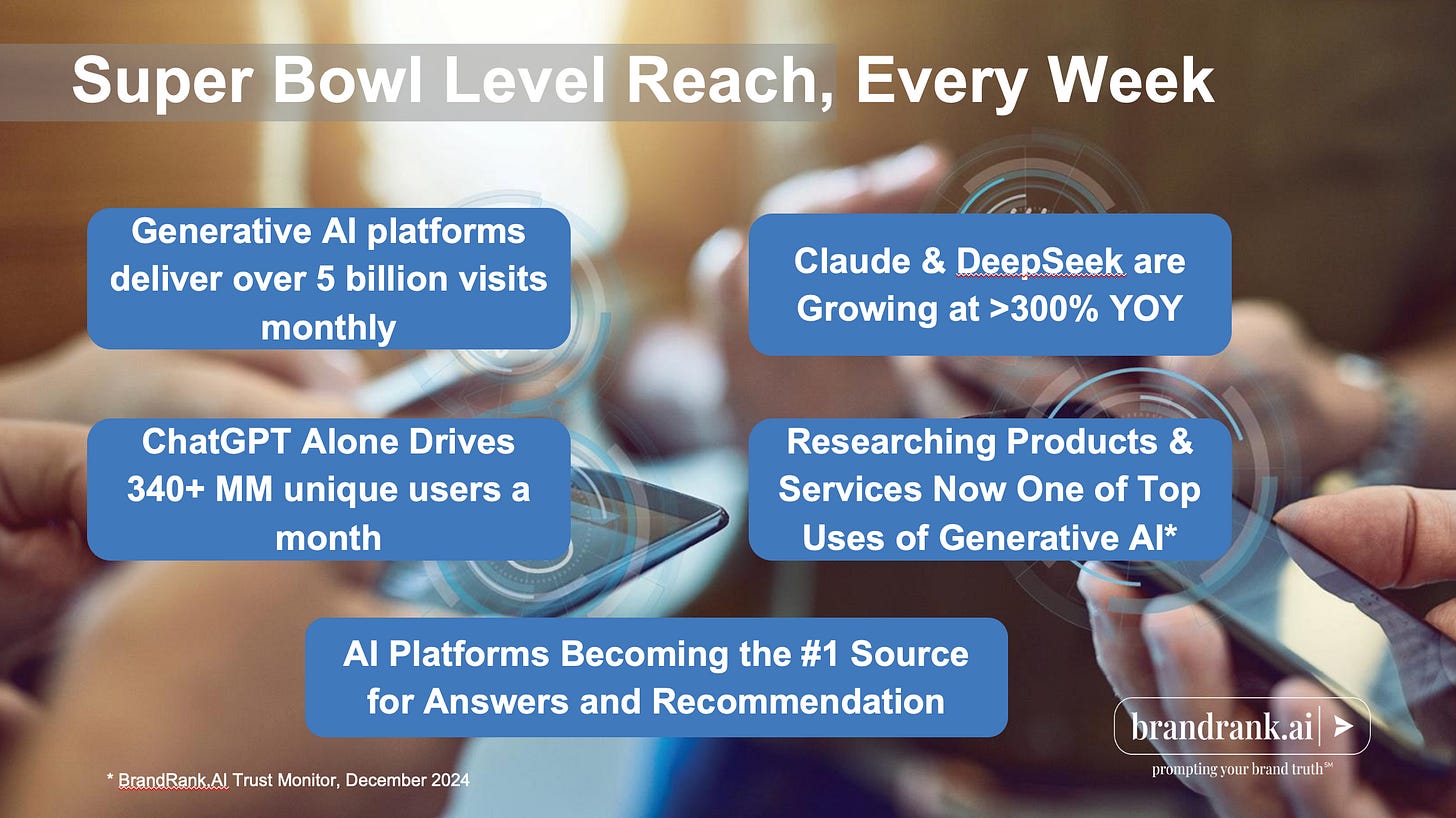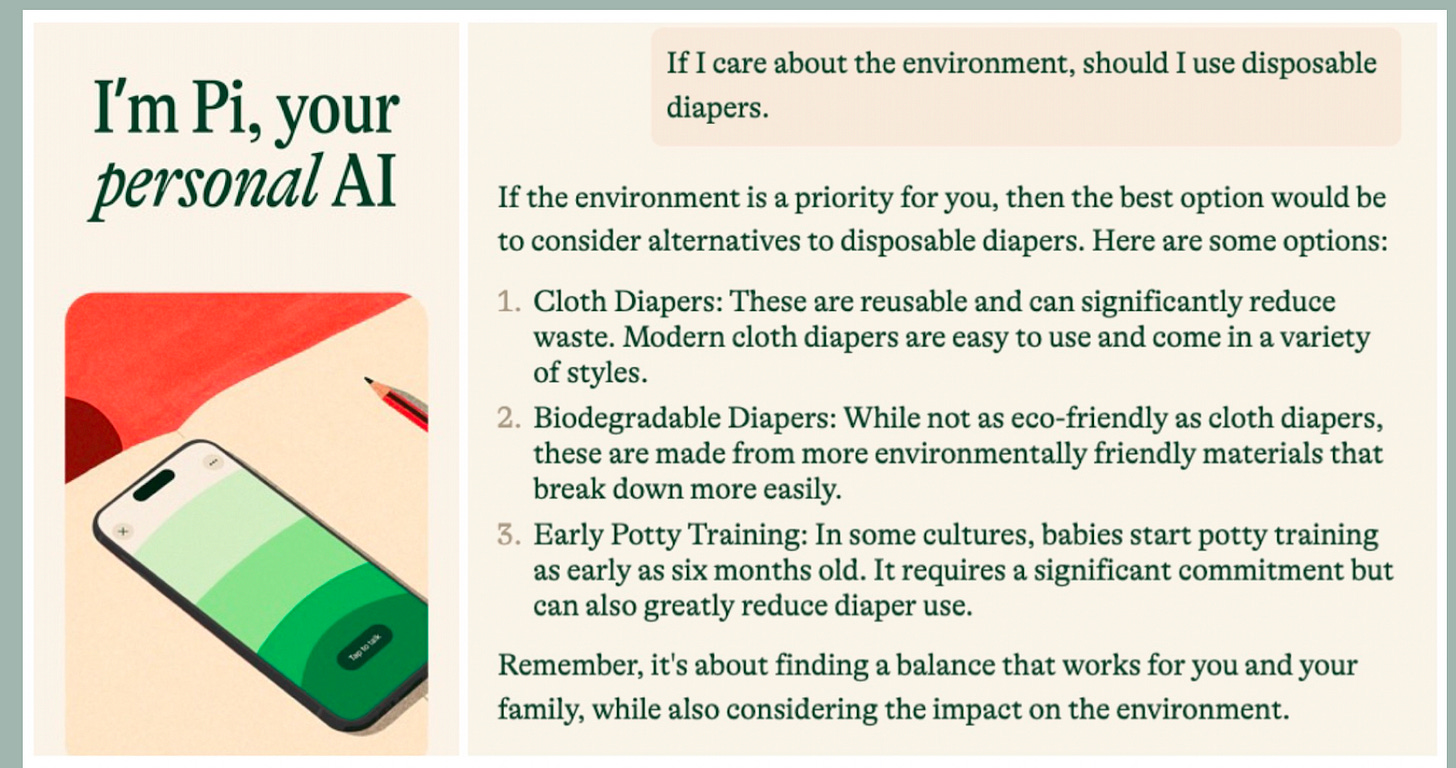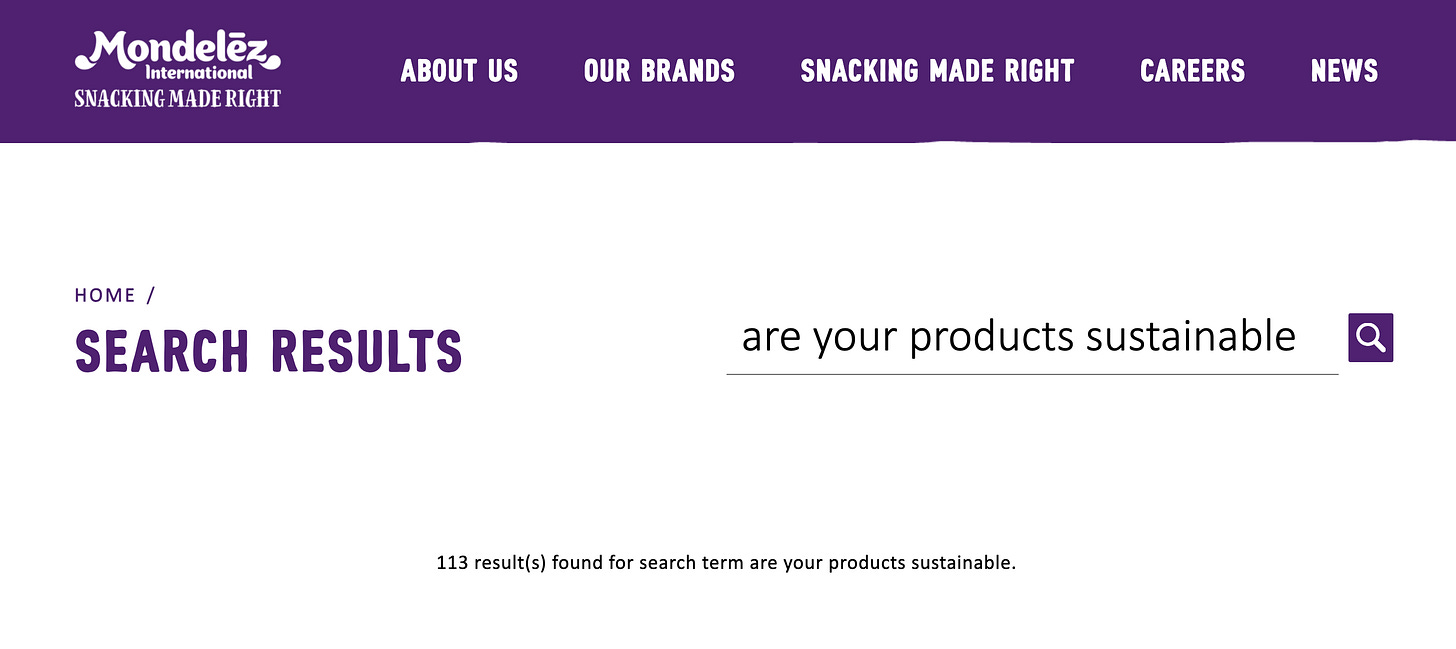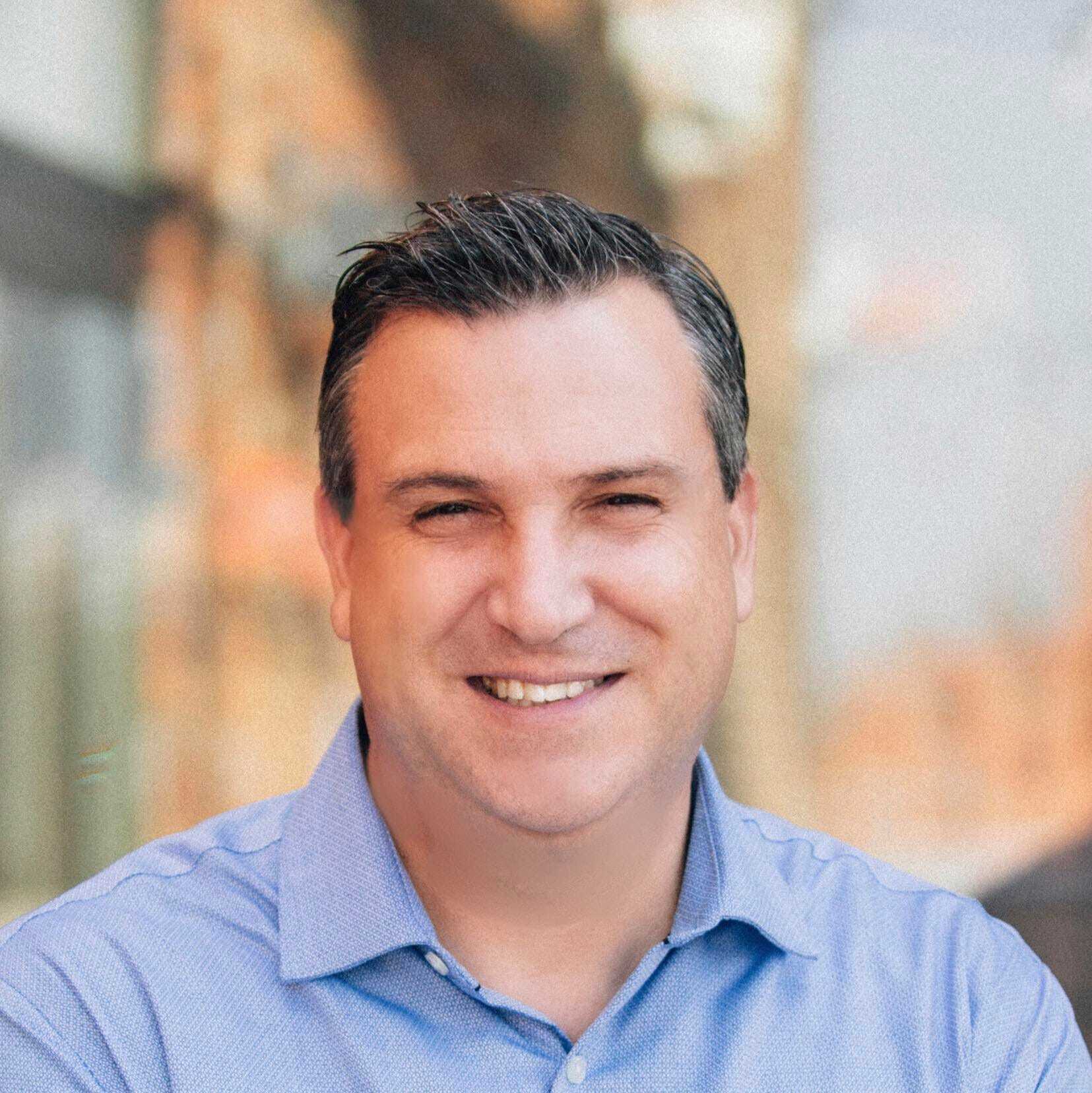Your Brand's Carbon Claims? AI Just Fact-Checked Them.
In the Answer Economy, transparency isn't optional -- and AI is keeping Score. BrandRank.AI recently completed an ...
In the Answer Economy, transparency isn't optional -- and AI is keeping Score.
BrandRank.AI recently completed an in-depth study of Amazon shoppers about their use of the e-commerce giant's rapidly expanding generative AI powered shopping assistant, Rufus. One statistic knocked me off my chair:
44% of environmentally conscious shoppers are more likely to use Amazon Rufus than other shoppers.
This is good news and bad news for brands competing in the Answer Economy. For brands with real credibility behind their green claims and aspirations, ever-reliable Rufus will bark back lots of love and detail behind your good efforts. For brands who don't meet the test, expect a few nasty bites.
Like all AI engines, Rufus isn't just about finding products; it serves as an "objective consultant" across category questions, need states (having a baby, planning a wedding, going camping, moving homes, starting college), and product preferences (best performing, most sustainable, most ethical).
Notably, Rufus is extra critical on sustainability issues, stemming in part from the fact that it's powered by Anthropic's Claude. What we've found across thousands of brand audits is that Anthropic is far and away the most critical — dare I say "demanding" — LLM around environmental issues. Put another way, you can't BS Rufus!
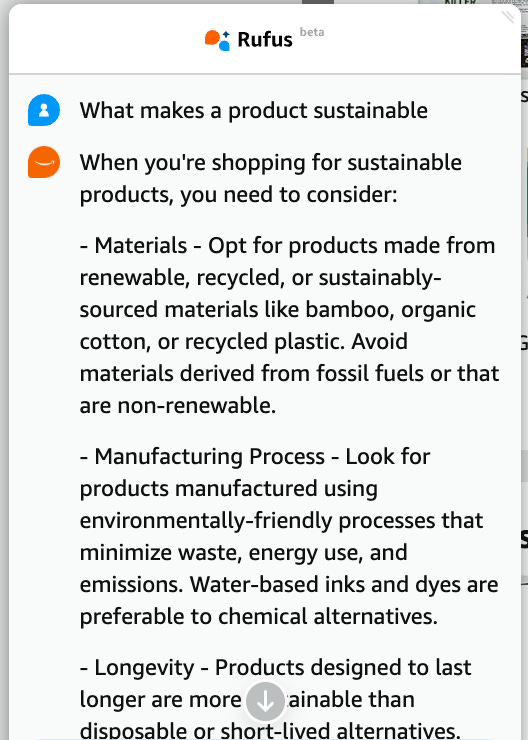
This comes full circle with an Ad Age column I penned shortly after ChatGPT launched entitled "AI's digital memory can debunk brand narratives." Back then, I warned that ChatGPT was acting as a "de facto BS detector and greenwashing filter" for brands making dubious sustainability claims.
That was tame. Every Answer Engine iteration these days - especially the wave of "deep research" models - brings BS detection capability as well as dot-connecting science to communicate green scores far better than brands themselves.
We put this to the test a year ago when we launched the industry's first-ever AI Coffee Sustainability study. Our accompanying white paper "Brand Alignment in the Age of AI Transparency" explores how generative AI engines are becoming powerful arbiters of brand sustainability by amplifying or exposing corporate environmental claims, urging brands to embrace "radical transparency" and optimize content for AI visibility to avoid misrepresentation and strengthen consumer trust.
AI across all the leading answer engines enables a granular view of sustainability by breaking it into distinct component parts—Climate Change and Energy Management, Water Stewardship, Waste Management and Circular Economy, Biodiversity and Ecosystem Protection, Pollution Prevention, Sustainable Sourcing and Materials, Product Lifecycle Management, and Environmental Management and Compliance—which we used to evaluate and rank 15 major coffee brands.
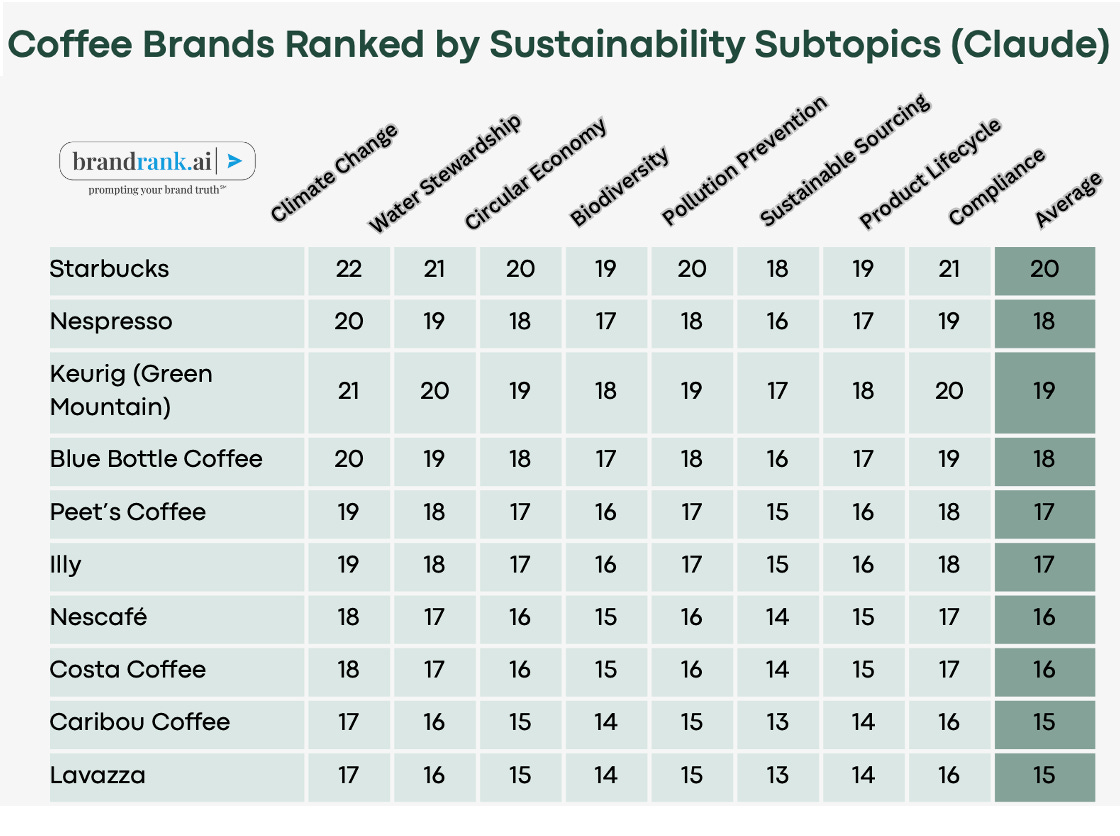
We've since applied this approach to other categories like cleaning products with remarkable precision. Purchase behavior confirms why this matters: our Amazon Rufus study found 38% of shoppers would switch brands based on Rufus insights. That's significant as Amazon drives nearly $250 billion in annual sales, with Rufus now prominent across the platform.
And that's not counting the even bigger footprint of Answer Engines, a fast-emerging shopper funnel that's anchored to what we call "The Prompted Moment of Truth" where answer engines "blend your truth." SimilarWeb recently reported search engines hit 5 billion visits monthly. That's a Super Bowl every week in terms of reach and engagement. Don't think for a second answers (or refutations) about your brand are not getting in front of buyers.
What Brands Need to Do
First, recognize all sustainability claims face intense AI scrutiny. Test this yourself: ask ChatGPT or Grok/X "Is my brand sustainable?" Every reporter and analyst already does this—get ahead of your story, however uncomfortable.
Second, check your visibility in category searches—"most sustainable laundry detergent." Are you present or facing the deafening silence? Why do Blueland, Patagonia, or Illy consistently appear for sustainable product searches
Third, brands need to rethink their readiness. Readiness is a product of several factors. Do you need to optimize your existing content to be more readable to engines? Should your environmental stats be in a more accessible format rather than locked in PDFs? We've noted that many companies are getting underscored because they lock their most important data in a vault. Brands need to keep their content really fluid and accessible.
Smart companies are already building AI-ready knowledge systems that make their data searchable and accessible. Sustainability marketers should follow suit: don't just create content about green initiatives—ensure the underlying data is structured and accessible to answer engines.
Lastly, invite consumer questions and provide transparent answers on your website—the #1 algorithmic anchor influencing Answer Engines. This creates a feedback flywheel: effective FAQs and search functionality on your site will be amplified by AI systems. Put on your "concierge hat" by anticipating tough sustainability questions and providing credible responses. Too many brands still return "blanks" when asked basic sustainability questions.
The Stakes Are Higher Than Ever
Finally, remember you can only "optimize" so much. Either you're green or you're not. The product and even the credentialing around the product (also incredibly important to answer engines) needs to back this up. Don't believe any consultant or agency who tells you that you can spin your way around this, or over-manipulate AI. It's much harder than Search 1.0, we've learned. Each LLM is competing to be the “Single Source of Truth” so they each hyper-vigilant about manipulation or “gaming.”
So for Earth Day 2025: celebrate wins but tread carefully. Don't oversell sustainability credentials. In a world where algorithms connect dots faster than we can, remember that AI—like Google and Wikipedia before it—never forgets.
And Rufus is watching you.
